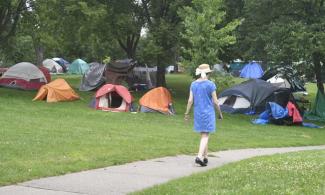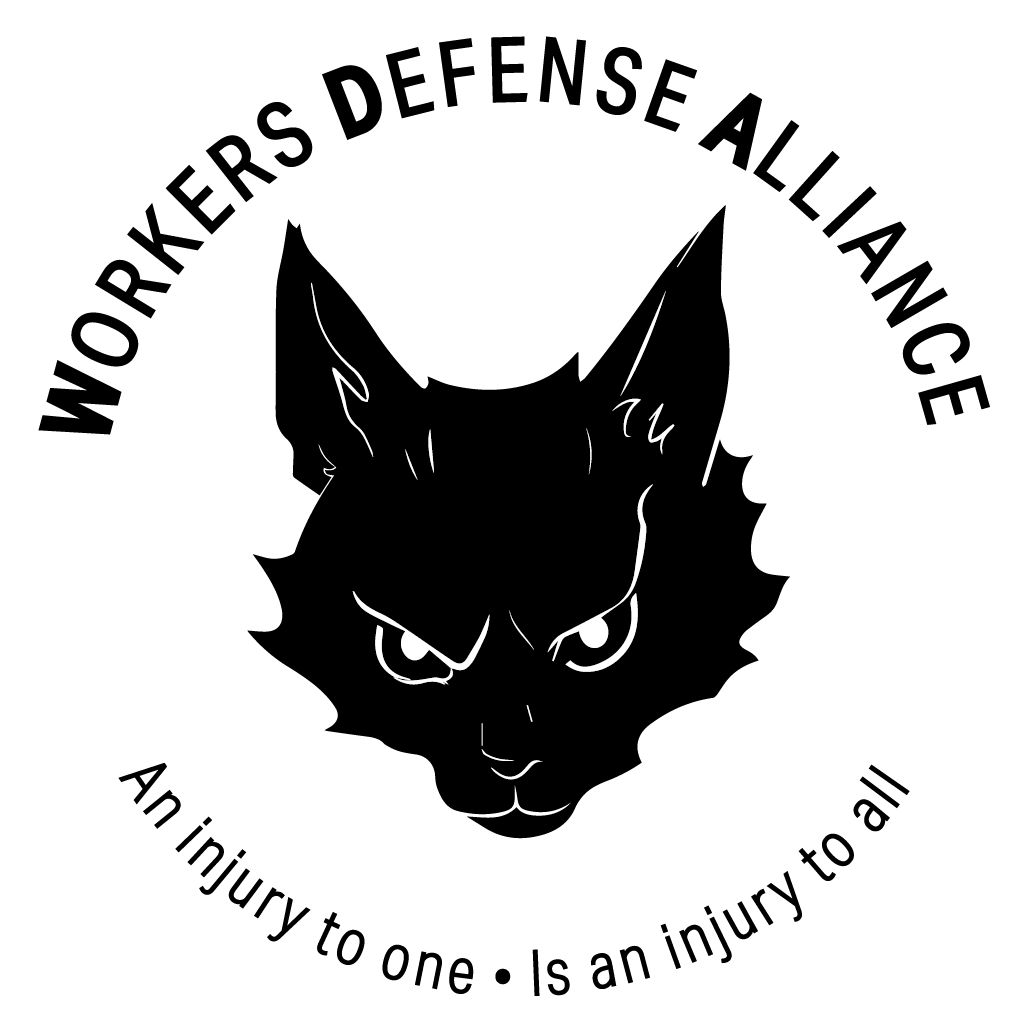
Carla Crabgrass - Longtime Clerical, Grocery, and Warehouse Worker, Currently Unemployed
After the murder of George Floyd by Minneapolis cops and the Uprising that followed, unhoused Minneapolis residents and supporters moved into Powderhorn Park, declaring all parkland to be sanctuaries for those without housing. Housed neighbors defended the camps from eviction by the Park Board and engaged in a massive mutual aid effort to secure food, healthcare, mental health services, showers, bathrooms, and security/maintenance for encampment residents.
But all along, some Powderhorn homeowners wrung their hands about “crime, drugs, and property values.” Uses of that divisive rhetoric were shut down by others who could sense the transformative way that the Minneapolis Uprising had shifted the fight around addressing human needs and dismantling oppressive systems of policing. After being challenged in public spaces, these neighbors moved their discussions to messaging apps and private meetings. Most elected officials refused to participate in public meetings to address the immediate needs for housing, but they did meet privately multiple times with neighbors who opposed the encampments.
These neighbors engaged in open ridicule and public harassment of folks living in the camps, and of their supporters in the neighborhood. There were threats and forced eviction actions against individual encampment residents who “dared” to set up tents in other areas of the park. The Powderhorn Neighborhood Organization, who viewed the encampments as tied to the affordable housing crisis, was attacked for their “support” of the encampments. These neighbors were also frustrated and confused by a leaderless movement that operated completely outside of the acceptable world of tidy non-profits.
The backlash from white Minneapolis progressives to radical demands/actions like the encampments, the George Floyd Autonomous Zone, and abolishing the police has taught me a lot about how a lack of real solidarity makes it easy to abandon radical ideas when comfort, control, and security are threatened.
